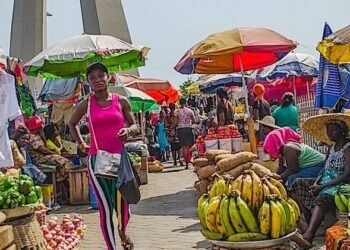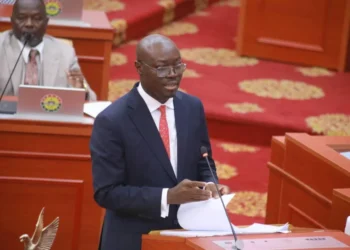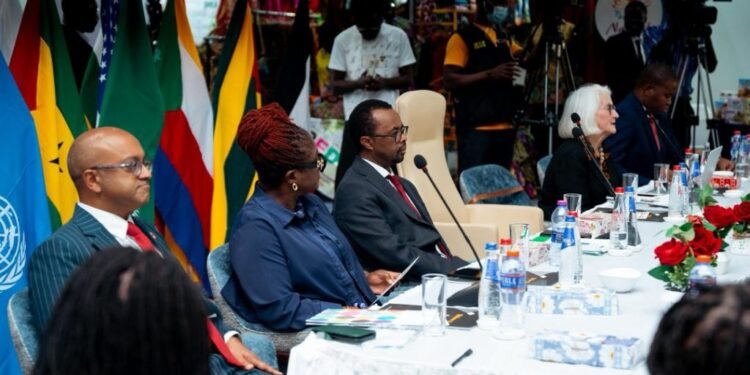The price jump from the cost at which petroleum products are imported into the country by Bulk oil Distributing Companies (BDCs) and the price at which Oil Marketing Companies (OMCs) sell fuel at the pump (price at which public buys fuel) is very alarming.
According to the automatic formula employed by the National Petroleum Authority (NPA), fuel is imported into the country at a relatively low cost of approximately GHS2.80 per litre, but price of fuel at the pump currently stands at averagely GHS6 per litre, representing a 114% increase. The price difference reflects more than half of additional charges including the numerous taxes, levies and margin adjustments placed on petroleum products.
The numerous ‘nuisance’ taxes, some of which have already served their purpose, but have not being retired yet, are still being charged on petroleum products. Thus, accounting for the exorbitant fuel prices that consumers have to pay. On account of this, it is rather the poor who tend to suffer from these price hikes, especially at a time when they continue to face the brunt of the pandemic.
Why this much increase, at a time when the price of crude oil on the international market only recently began gaining momentum as compared to pre-pandemic levels, with current oil price at US$ 65.53 per barrel. The masses are calling for withdrawal of these ‘nuisance’ taxes in order to reduce the price rise on petroleum products.
Compared with fuel prices in the West Africa region, this sets Ghana’s fuel price among the highest. Meanwhile Nigeria maintains the cheapest fuel price. According to GlobalPterolPrices.com, price of fuel per litre in Nigeria costs 45.4 cents, Togo (78.1 cents), Sierra Leone (83.0 cents), Guinea (90.9 cents). The current rise sets Ghana’s fuel price at around $1.10 per litre.
Based on NPA’s price build-up released on May 5, there are twelve components for the pricing of petroleum products. These include 6 levies amounting to GHS1.42, a special petroleum tax of 11pesewas, and 5 margins amounting to GHS1.02. These are apart from the new taxes that the government has approved- sanitation and pollution levy, 18 pesewas per kg on Liquefied Petroleum Gas (LPG) and the Energy sector Levy of 20 pesewas per litre on petrol and diesel.
Petroleum pricing regime
When BDCs import petroleum products into the country, they are regulated by the NPA for the purposes of ensuring the recovery of full cost, government revenue generation and uniformity of prices through the Unified Petroleum Price Fund (UPPF). Full cost recovery within the value chain is based on the Import Parity Pricing (IPP) benchmark.
The IPP benchmark represents the price that the BDCs would pay at the ports as they import petroleum products. The IPP benchmark allows for a strong relationship between actual costs of fuel imports into Ghana taking into account global developments.
That said, NPA uses a two-week inventory window from the 1st-16th of the month. The two-week average of the free on board (FOB) prices (freight or shipment cost) of the products is computed using a pricing reference.
The NPA works a historical average exchange rate of cedi to the dollar within the two-week period into the additional charges such as port duties. Consequently, this is added to arrive at the Ex-refinery price calculated in Ghana pesewas per litre.
Furthermore, approved taxes and levies passed by Parliament are then added alongside various distribution margins to arrive at the final Ex-pump price- the price of fuel at the pump at various filling stations.
New taxes imposed on petroleum products
The government, upon Parliament’s approval, rolled out new taxes as arraigned in its 2021 budget, implemented on May 1, 2021. For the government, these austere measures are geared towards bringing the economy back to normalcy, stabilizing government’s finances, providing funds for retiring government’s outstanding debts, and footing bills of government outlined expenditure for the year.
Specifically, taxes imposed within the petroleum sector include an energy sector recovery levy of 20 pesewas per litre of petrol and diesel, a Sanitation and Pollution Levy of 10 pesewas per litre of petrol and diesel, 18 pesewas per kg on Liquefied Petroleum Gas (LPG).
Besides, for the government, placing taxes on petroleum products is a quick way of raising revenue for its projects. However, the government risks burdening the poor as a result. This is reflected in the direct effects of petroleum taxes on inflation, thus worsening an already difficult situation due to COVID.
The recent call by citizens for the government to fix the country in a twitter trend which has sparked empathy from among the masses expresses the difficulties that many households are already facing as a result of the pandemic, and these taxes may compound their woes.
Elsewhere, in Colombia, reports indicate that the government’s decision to impose new taxes was met with severe opposition and protests by the masses, which then forced the government to withdraw the taxes. Although regretfully, about six protesters lost their lives in the process in the last couple of days.
While the government seeks to build back the economy on a sustainable path, considerations must be given towards the debilitating effects austerity measures have on the masses.
Therefore, stakeholders should be consulted in order to come up with a system that is better for all. Moreover, the government should consider the plight of the masses and their call for withdrawal of these taxes. This is in order to unburden the dire economic effects of the pandemic on them.
READ ALSO: Gov’t spent GH¢ 421.6m to ensure the provision of Decent Work in 2020























